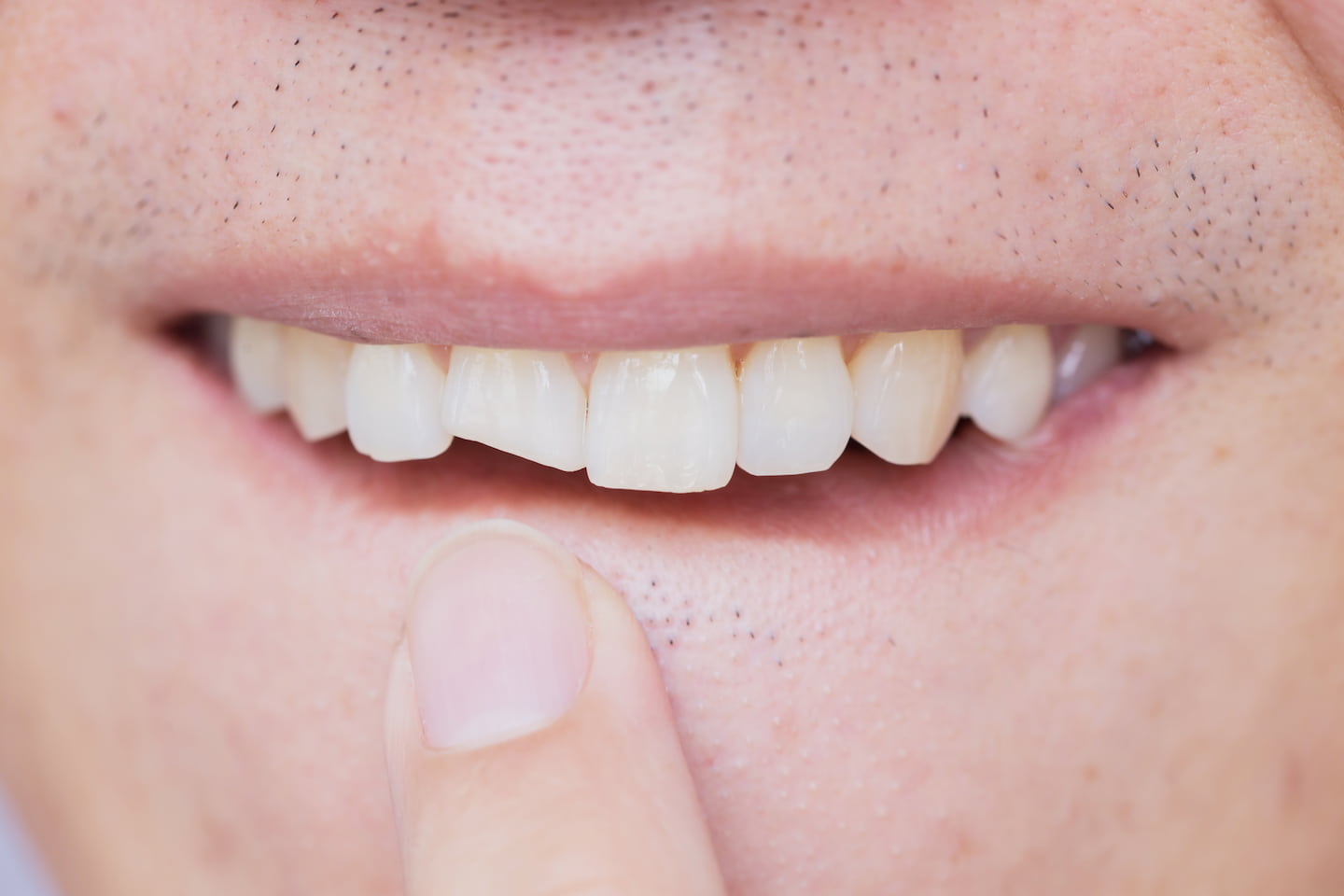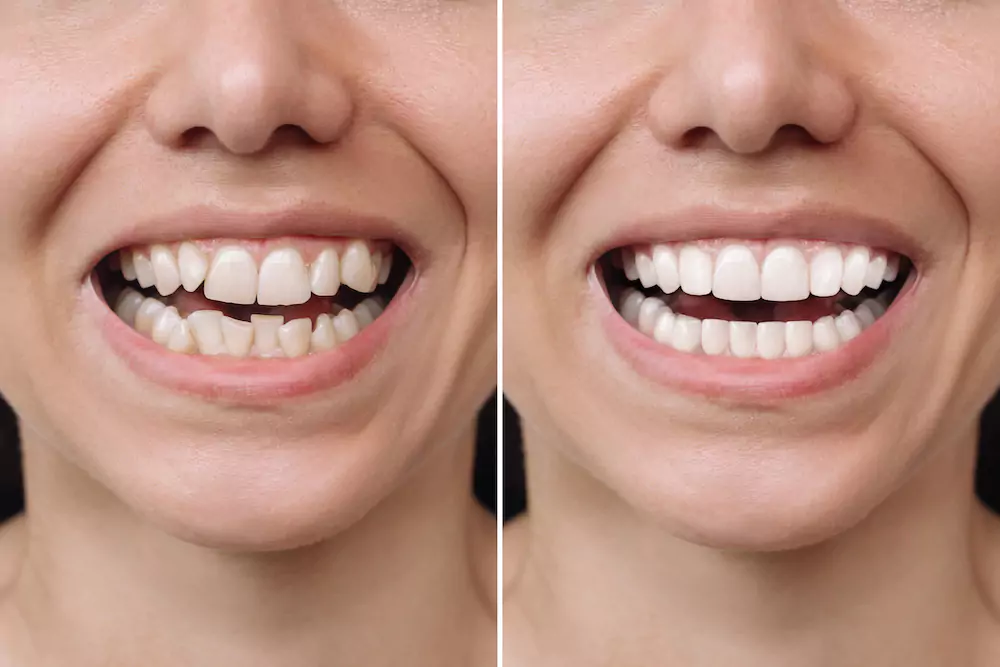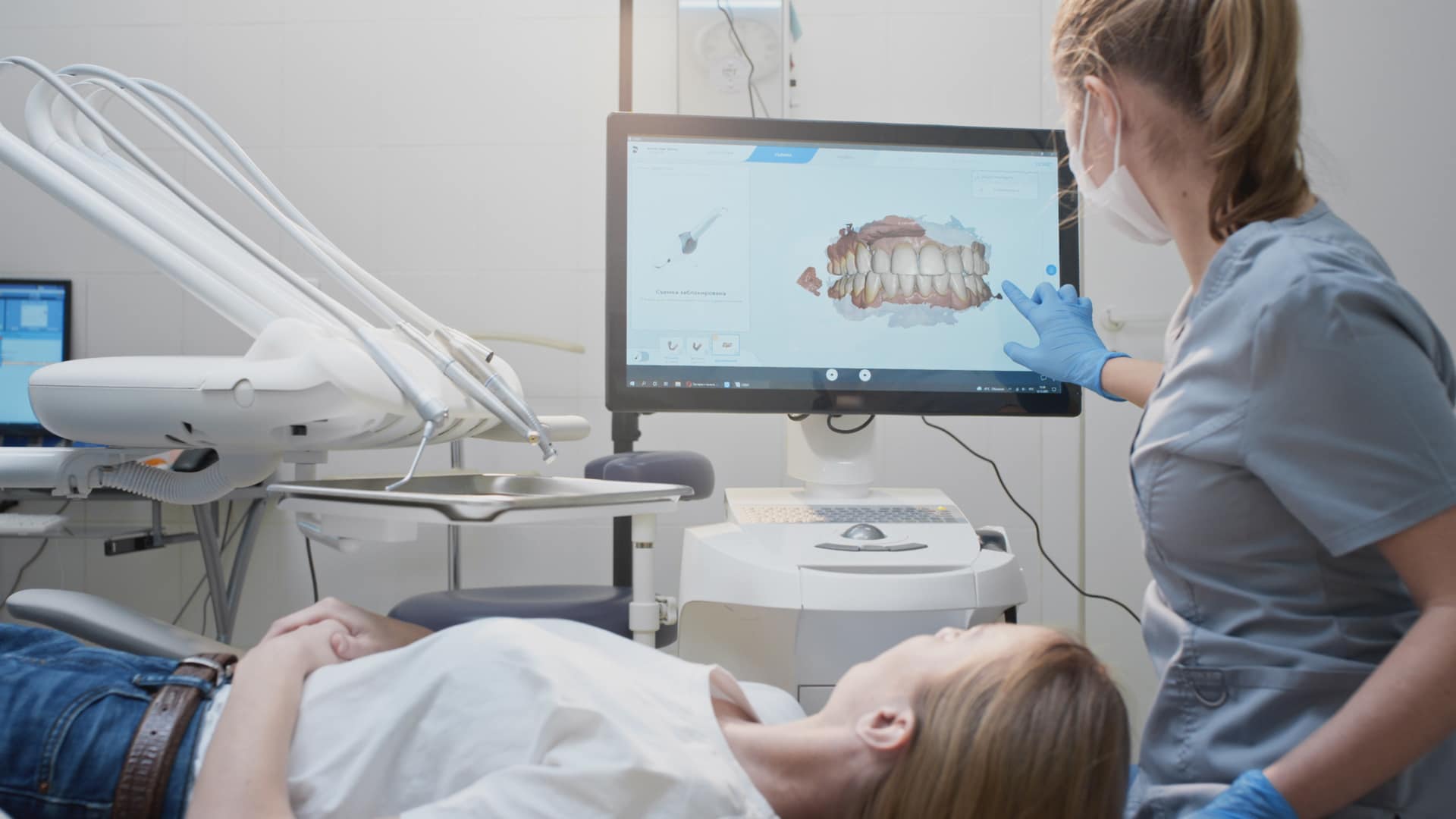
5 Things You Need To Know About Root Canals
If an infection develops in the nerve of your tooth, a root canal treatment may be needed to heal the infection and prevent tooth loss.
Although root canal treatment is a common, highly effective dentistry procedure, many patients are intimidated when they hear they need a root canal.
Here, we’ll cover everything you need to know about root canals so you can know exactly what to expect if you need one. We’ll also cover frequently asked questions about root canal treatment, including how to prevent root canals.
What Is Root Canal Treatment?
When untreated or severe tooth decay damages the centre of the tooth, it can cause the nerves to die or become infected.
Root canal treatment involves clearing away the infected nerve from inside a tooth to help protect surrounding teeth, stop the infection from spreading, and restore function to your tooth.
During treatment, your dentist will clear away infected tissue, fill the affected area, and seal the tooth to protect it against further decay. Root canal treatment typically takes two to three visits.
5 Things You Need To Know About Root Canals
1. Root Canals Are Key to Preventing Infection and Serious Oral Health Complications
If your tooth is infected and the damaged nerve is not cleared away, the infection can continue spreading through the rest of your tooth and even to your surrounding teeth. This infection can begin eating away at the bone that keeps the tooth secure. Without treatment, you may lose the infected tooth.
Along with pain, a missing tooth can lead to additional oral health problems such as:
- Changes to your bite
- Trouble chewing
- Difficulty speaking
- The shifting of surrounding teeth
- A missing tooth can also make it more difficult to floss and brush properly, leading to an increased risk of tooth decay.
- It’s a vicious cycle. Fortunately, your risk of tooth decay can be reduced by seeing your dentist for regular checkups and following a good oral hygiene routine.
To avoid oral health complications, early detection of decay is crucial. The earlier decay is recognised and treated, the less chance you have of requiring costly, invasive treatment.
If the infection is treated promptly, root canal treatment can effectively treat the infection, save your tooth, and restore function.
2. Root Canals Do Not Have to Be Painful
Do root canals hurt?
We hear this question all the time, and we aren’t surprised. Root canal treatment is notorious for being a painful procedure. However, advancements in the dentistry world have helped make root canal treatment as painless and comfortable as possible.
While every individual has a personal pain tolerance, we take extensive precautions to ensure any treatment we provide is as pain-free as possible.
Before treatment, your dentist will numb the affected area to minimise discomfort. Typically, nitrous oxide sedation or oral-conscious sedation is used. Most patients report feeling pressure throughout treatment but not pain.
If you are worried about pain during root canal treatment or experience dental anxiety, please do not hesitate to let us know. We’ll spend extra time making sure you feel reassured and at ease during all steps of the procedure.
3. Root Canal Treatment is a Simple Process
Root canal treatment may sound overwhelming, but the actual procedure is quite simple. First, your dentist will numb the area. Then, the infected nerve will be removed and the inside of your tooth will be thoroughly cleaned and disinfected.
Then, your tooth will be filled and sealed to restore function and health to your tooth.
If you have questions about root canal treatment or want to learn more, you can check our Root Canal Treatment page for additional information or contact us.
4. You May Need a Crown After a Root Canal
Typically, a filling is used to replace the infected nerve that is removed during root canal treatment. If the infection causes too much damage to the tooth, a filling may be inadequate and could leave the tooth susceptible to more decay.
If your dentist determines that a filling won’t be enough to fix your tooth, a crown will be used to restore the tooth and fortify it against future decay.
Back teeth that undergo root canal treatment typically should have crowns as these take the most force and stress when you are chewing.
Both fillings and crowns provide long-lasting protection against bacteria and decay when they are properly maintained. Follow a good oral hygiene routine and talk with your dentist about how to take care of fillings or maintain a crown.
5. Recovery After a Root Canal is Probably Faster Than You Think
Given the reputation surrounding root canals, many patients think the recovery will be a long, slow, and painful process. Fortunately, this isn’t true.
Along with keeping you informed during every step of the procedure, we’ll also assist you during the recovery process. We will answer all of your questions and provide you with a simple yet detailed after-care plan to follow.
After treatment, you will likely experience some mild pain, sensitivity, and swelling during the first few days of recovery. You may be prescribed antibiotics or pain medication or you may be advised to take over-the-counter pain medication if needed.
Following root canal treatment, it is important to avoid certain activities to ensure proper healing. To speed up the recovery process and prevent complications, we will likely advise you to:
- Do not eat for at least several hours after root canal treatment (you want to make sure any numbness is completely gone)
- Take pain medication or antibiotics as prescribed
- Gargle with warm salt water
- Do not participate in strenuous activities (i.e. aerobics, running, physical labour, sports, etc.) after treatment
- Get enough rest
- Do not smoke or drink alcohol
- Avoid hot beverages or foods as these may exacerbate swelling or pain and slow down your recovery
- Do not use a straw to drink
- Avoid sticky or hard foods
- Do not chew on non-food objects such as ice, fingernails, pens, or pencils
- When you do resume eating after the root canal treatment, eat a healthy, balanced diet
Can I Avoid a Root Canal?
Unfortunately, once the nerve inside your tooth becomes infected, a root canal is the most effective and affordable way to relieve any pain and restore your dental health.
If you are experiencing symptoms of tooth infection, contact us right away. Our dentists can evaluate your oral health and determine the best treatment route.
Can Root Canals Be Prevented?
Although a root canal is the most effective way to treat an infected tooth, there are plenty of ways you can help prevent the need for a root canal.
As with any oral health issue, prevention is key. Follow these oral hygiene tips to help support your overall oral health and decrease the risk of ever needing a root canal:
- Brush twice a day
- Floss at least once a day
- See your dentist regularly for general dental checkups (your dentist can recognise the early signs of tooth decay and treat any issues as early as possible)
- Protect your teeth against chips or cracks (ask us if you should be using a custom-made mouthguard for contact sports)
- Ask your dentist for instructions on how to brush your teeth properly or for recommendations on the best toothpaste
- Limit your intake of sugary foods and drinks as processed, sugary foods contribute to tooth decay and oral health issues.
What Are the Signs I Need a Root Canal?
If you are experiencing any of the following symptoms, you should contact your dentist immediately for evaluation:
- Untreated or severe tooth decay
- Injury to a tooth (cracks or chips in teeth can leave you susceptible to decay or infection)
- Extreme sensitivity to cold or hot foods or beverages
- Discolouration of a tooth
- Severe pain when biting or chewing
- Swelling or tenderness around a tooth
- Darkening of the gums
Do You Have More Questions About Root Canal Treatment?
We are here to help you achieve and maintain your healthiest smile with our range of comprehensive family dental services.
From general dentistry services such as check-ups to specialised treatments such as root canals, our dentists in Canning Vale are here to assist you with all your dental needs.
Given our focus on creating a relaxed atmosphere and keeping our patients informed every step of the way, we can help you get through root canal treatment as painlessly and seamlessly as possible.
If you are experiencing signs of tooth decay, think you need a root canal, or have other questions or concerns, please contact us. We are happy to answer all of your questions or set up a consultation for you to meet with one of our exceptional dentists.




